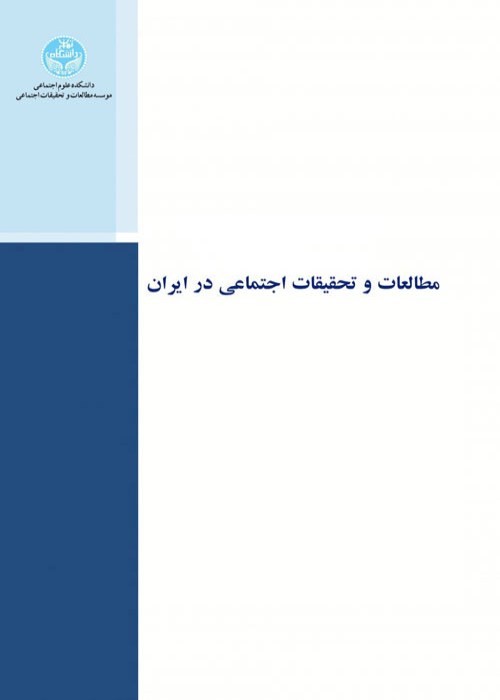Coping with Powerlessness in the Experience of Illness: A Narrative Study of Complementary and Alternative Medicine Users
Author(s):
Article Type:
Research/Original Article (دارای رتبه معتبر)
Abstract:
Introduction
The growing tendency of health service consumers to use a variety of complementary and alternative medicine has led to dramatic changes in the experience of the illness and its socio-economic attachments. Reflexive behaviors that are observed with the normalization of alternative medicine have not been thoroughly studied in social research in Iran.Method
The present study uses narrative analysis to study the trend of such behaviors in retelling the experience of patients. For this purpose, twenty-nine narrative interviews with patients with extensive experience in this field were selected based on five criteria, that are, (1) “the health status” of those who have sought for or tried any types of alternative medicine, which also implies the reason for their referral in most cases, (2) “type of alternative medicine” to which they have referred, which may be either one or more courses of treatment with possibly different medicines, (3) “the organizational type” of the provider of medical services, whether academic, popular, based on religious beliefs, etc., (4) “age” categorized as young or middle-aged, and (5) “gender”. The interviews were rewritten and compiled as coherent linear narratives, from the beginning of the patient’s story to its end. After that, the narratives were coded by thematic analysis.Findings
The results showed that “feeling of powerlessness” was one of the most frequent themes in the narratives of the experience of illness. Major dimensions of the feeling of powerlessness can be seen as (A) institutional powerlessness, which is summarized as (A-1) powerlessness in prosecuting medical malpractice, (A-2) dissatisfaction with hospital services, (A-3) inequality in access to health care, and (A-4) insulting the private sphere and personal information, (B) weakness in the narrative of the illness, which is described by two subcategories (B-1) denial of the patient’s symptoms, and (B-2) the specialized language of physicians, and (C) powerlessness in the prescribing process, categorized as (C-1) being unaware of what the drugs might do, i.e., their side effects or in a number of cases what the patients call drug addiction, and (C-2) having an unbalanced relationship with the physicians.Conclusion
Reviewing these findings, the present article addresses how the “feeling of powerlessness” affects the experience of illness and uses Ulrich Beck’s idea of the late modernity to show how patients’ powerlessness is in part the inevitable representation of physicians’ powerlessness due to the faltering position of science. The findings also show that without considering patients’ understanding of the treatment process, heterogeneous power practices underlie the failure of health policies towards complementary and alternative medicine. Furthermore, managing this field in the interests of maximum health is possible only by recognizing the patients’ need to have a balanced relationship with the medical staff and briefing the patient on the side effects of the prescribed drugs.Keywords:
Language:
Persian
Published:
Quarterly of Social Studies and Research in Iran, Volume:10 Issue: 4, 2021
Pages:
999 to 1028
magiran.com/p2369582
دانلود و مطالعه متن این مقاله با یکی از روشهای زیر امکان پذیر است:
اشتراک شخصی
با عضویت و پرداخت آنلاین حق اشتراک یکساله به مبلغ 1,390,000ريال میتوانید 70 عنوان مطلب دانلود کنید!
اشتراک سازمانی
به کتابخانه دانشگاه یا محل کار خود پیشنهاد کنید تا اشتراک سازمانی این پایگاه را برای دسترسی نامحدود همه کاربران به متن مطالب تهیه نمایند!
توجه!
- حق عضویت دریافتی صرف حمایت از نشریات عضو و نگهداری، تکمیل و توسعه مگیران میشود.
- پرداخت حق اشتراک و دانلود مقالات اجازه بازنشر آن در سایر رسانههای چاپی و دیجیتال را به کاربر نمیدهد.
In order to view content subscription is required
Personal subscription
Subscribe magiran.com for 70 € euros via PayPal and download 70 articles during a year.
Organization subscription
Please contact us to subscribe your university or library for unlimited access!


